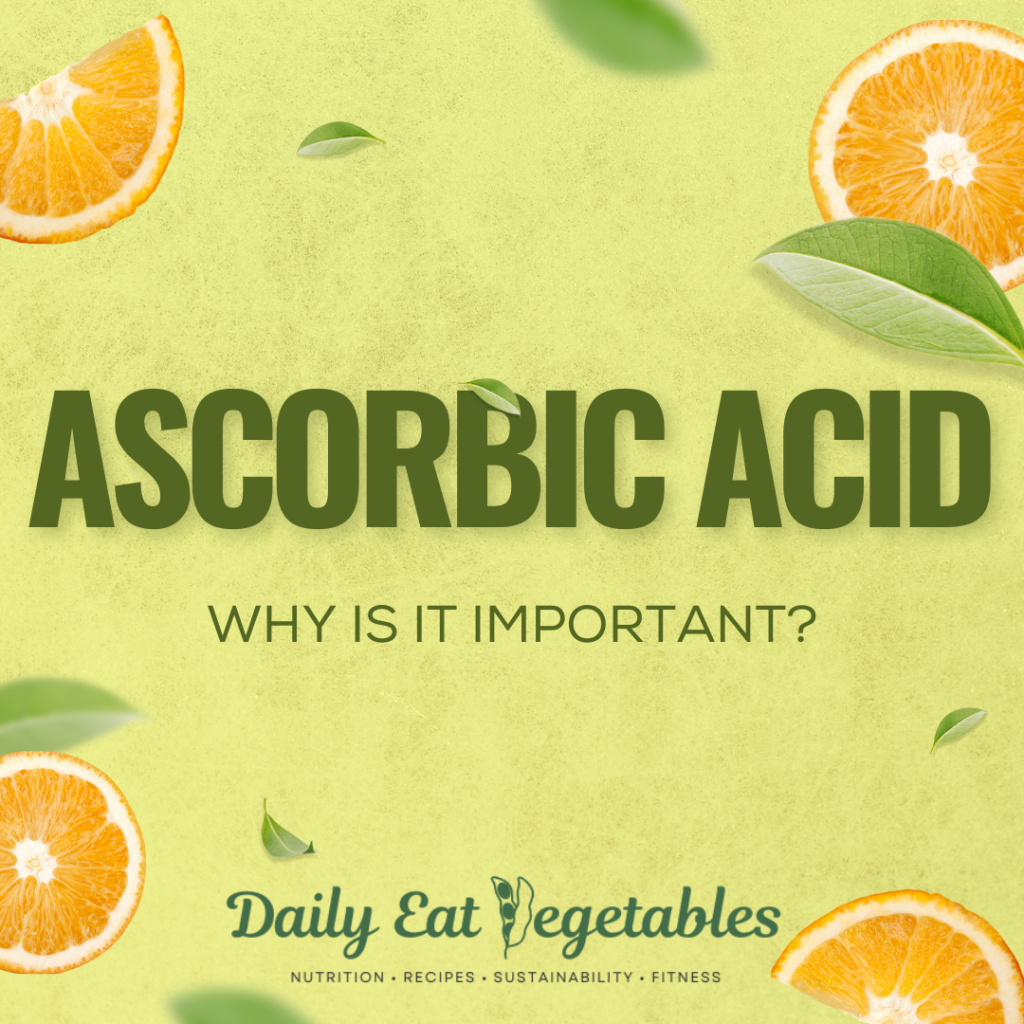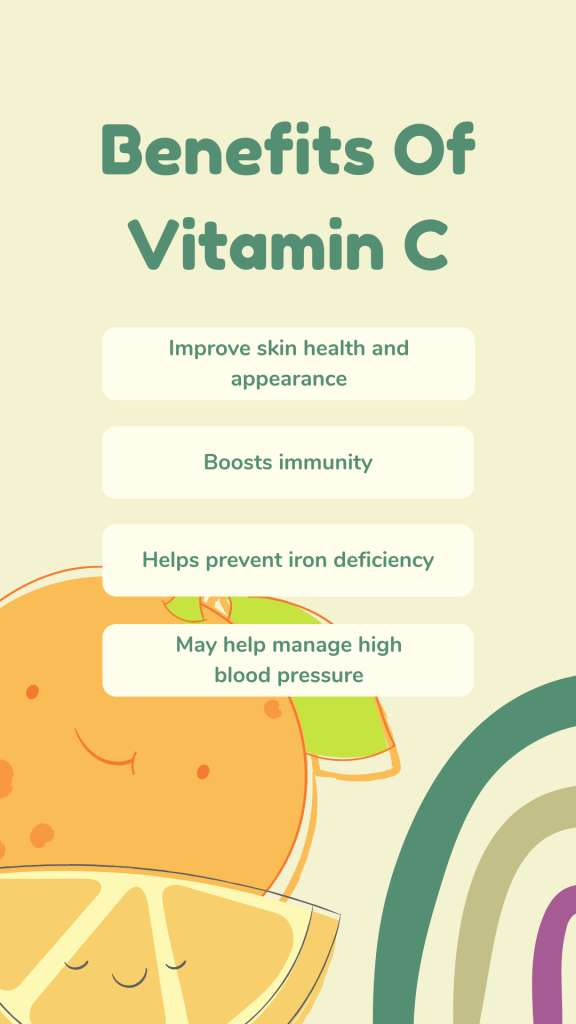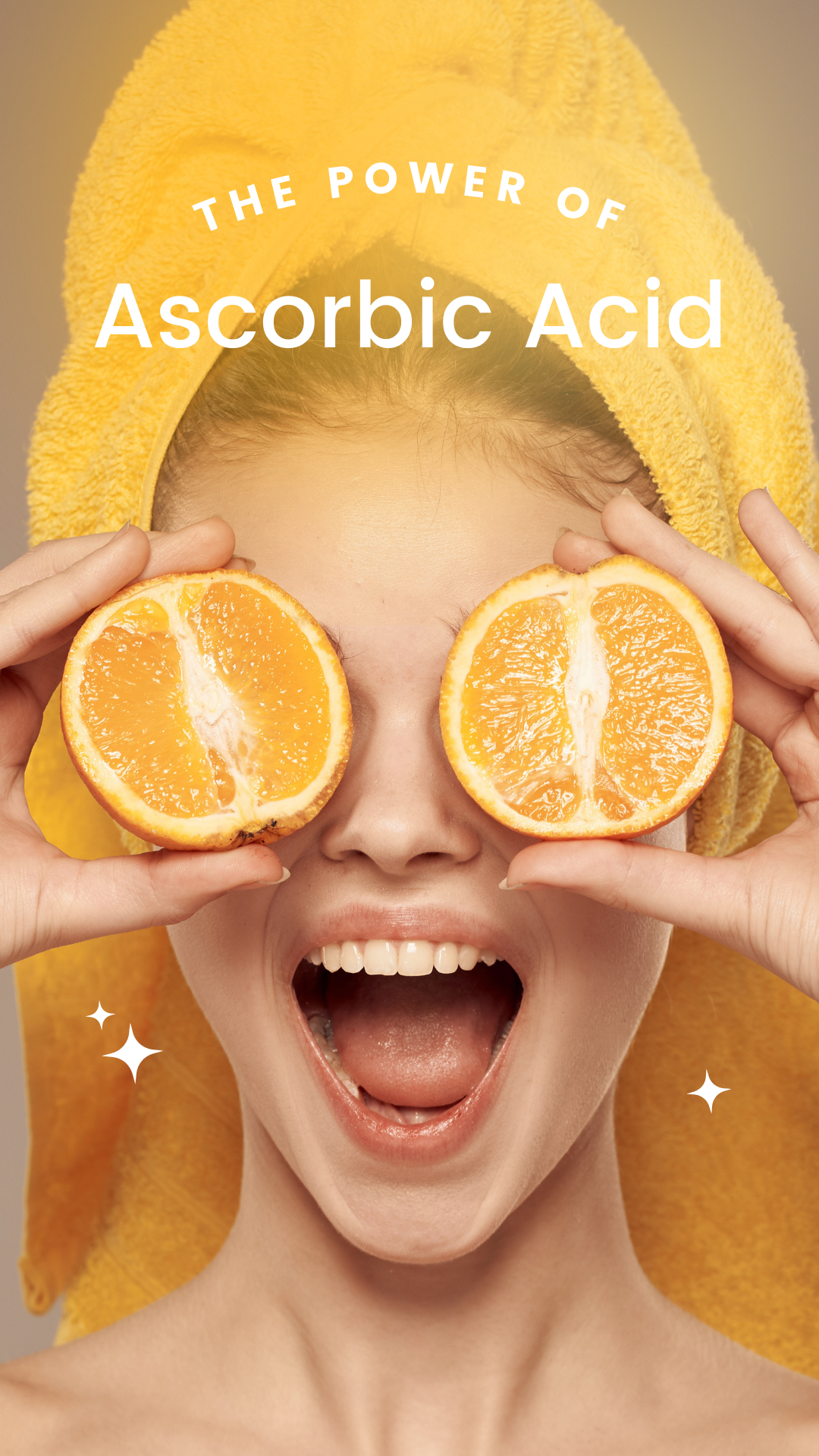As an expert in the field, I’ve gained a deep understanding of ascorbic acid and its significance. To put it simply, ascorbic acid is a water-soluble vitamin, commonly known as vitamin C.
An essential nutrient for the human body, it plays a crucial role in various bodily functions like collagen production, wound healing, and improving our immune system. While our body can’t produce vitamin C on its own, it’s vital to get sufficient amounts through our diet, primarily from fruits and vegetables like citrus fruits, berries, and green leafy vegetables.
One amazing aspect of ascorbic acid is its potent antioxidant properties, which protect our body from harmful free radicals, ultimately reducing the likelihood of certain diseases such as heart disease and cancer.
Considering its importance in maintaining overall health, it’s no wonder so many people take vitamin C supplements, especially during the cold and flu season, to keep their immune system in top shape.
When it comes to using ascorbic acid for skin health, this miracle vitamin does wonders by promoting collagen synthesis, which helps keep our skin youthful and firm. Additionally, it helps in fading dark spots, reducing inflammation, and even improving the skin’s natural sun protection capabilities.
TLDR;
- Ascorbic acid is another name for vitamin C, a vital nutrient for human health.
- Important roles include collagen production, immune system support, and acting as a powerful antioxidant.
- Ascorbic acid contributes to healthy skin by promoting collagen synthesis, fading dark spots, and reducing inflammation.

Ascorbic Acid Explained
It’s time to talk about ascorbic acid, a compound that may sound unfamiliar, but it’s something I’ve learned a lot about. As a synthesized form of vitamin C, it offers numerous health benefits. So why is it important, how does it work, and where can you find it? Let me explain.
Ascorbic acid is a water-soluble vitamin that can be found in various fruits and vegetables such as oranges, strawberries, broccoli, and peppers. It plays a crucial role in maintaining several vital functions in our body:
- Collagen synthesis: Ascorbic acid is necessary for the formation and maintenance of collagen, which makes up a significant portion of our connective tissues like skin, tendons, and ligaments.
- Wound healing: It’s crucial for the repair of damaged tissue and helps wounds heal faster.
- Immune function: Ascorbic acid strengthens the immune system and contributes to the prevention of infections.
- Antioxidant properties: It protects cells from damage caused by free radicals and reduces oxidative stress.
People often take ascorbic acid as a dietary supplement for various reasons such as boosting immunity and preventing scurvy. Scurvy is a rare but serious condition that occurs when there’s a severe deficiency of vitamin C in the body. Some symptoms include swollen gums, weakness, and anemia.
However, it’s worth noting that excessive consumption of ascorbic acid may lead to side effects. To avoid these, stick to the recommended daily allowances (RDAs) provided by the National Institutes of Health (NIH):
| Age group | Males | Females |
|---|---|---|
| 1-3 years | 15 mg | 15 mg |
| 4-8 years | 25 mg | 25 mg |
| 9-13 years | 45 mg | 45 |
Health Benefits and Functions
Ascorbic acid, more commonly known as vitamin C, has multiple health benefits and plays a crucial role in the human body. I’ll explore some of the key functions and benefits of this essential nutrient.

Firstly, ascorbic acid is a potent antioxidant, protecting cells from damage by neutralizing free radicals. This can help our body in the battle against various illnesses and diseases. In addition, this antioxidant property might even have a role in preventing and addressing certain skin problems.
As part of its role in wound healing, ascorbic acid aids in the formation and maintenance of collagen. Collagen is the most abundant protein in our body and is essential for the structure of skin, blood vessels, and connective tissues. A healthy collagen production contributes to:
- Improved skin health and appearance
- Better wound healing
- Stronger bones and joints
A strong immune system is vital for overall health, and ascorbic acid plays a critical part in its function. It boosts the production of white blood cells (lymphocytes and phagocytes) which help defend our body against infections. Vitamin C also enhances the function of these immune cells and helps with the absorption of iron, another crucial nutrient for immune system performance.
Vitamin C has also been linked to a lower risk of chronic illnesses. Research suggests that regular consumption of ascorbic acid-rich fruits and vegetables may reduce the risk of heart disease, cancer, and eye-related problems like cataracts.
In the context of the common cold, though not a miracle cure, ascorbic acid might have some benefit when it comes to reducing the cold’s duration and severity. High doses of vitamin C could potentially shorten the length of a cold by about 8% in adults and 14% in children.
| Benefits | Effect on Adults | Effect on Children |
|---|---|---|
| Shortened length of cold | 8% | 14% |
To better reap these health benefits, it’s crucial to maintain a balanced diet rich in vitamin C through the consumption of fruits and vegetables like oranges, strawberries, broccoli, and spinach, to name a few.
Remember, although vitamin C is an essential nutrient for maintaining overall health, it is important to understand that taking excessive amounts may lead to side effects. Always consult with a healthcare professional regarding supplementation, especially if you have specific conditions or concerns.
Conclusion
So, what is ascorbic acid? To sum it up, ascorbic acid is a naturally occurring organic compound also known as vitamin C. It’s present in various fruits and vegetables, particularly citrus fruits. There are several good reasons to incorporate ascorbic acid into your diet or skincare routine:
- It plays a crucial role in maintaining our overall health by strengthening the immune system and providing antioxidant properties.
- Ascorbic acid promotes collagen production, contributing to skin elasticity and wound healing.
- The consumption of vitamin C-rich foods can help prevent various diseases such as scurvy, certain types of cancer, and cardiovascular issues.
| Benefits | Sources | Daily Value |
|---|---|---|
| Immune system support | Citrus fruits | 75-90 mg for adults |
| Antioxidant properties | Berries, kiwis | |
| Skin health | Spinach, kale | |
| Disease prevention | Broccoli, bell peppers |
Other concerns often raised include:
- Stability: As an expert in this field, I must mention that ascorbic acid is quite sensitive to light, heat, and oxygen exposure. So, it’s crucial to store it correctly in a cool, dark, and dry place.
- Synthetic vs. natural: While it’s generally advised to obtain ascorbic acid from natural sources like fruits and vegetables, synthetic versions can still offer the same benefits. They’re typically more affordable, have a longer shelf life, and can be easily incorporated into daily routines.
Remember always to consult with a healthcare professional or a dermatologist before drastically changing your diet or starting a new skincare regimen. It’s essential to ensure that you’re finding the right balance for your unique needs.
With all this information, I hope I’ve answered the question of “what is ascorbic acid” and its importance. Now you can make informed decisions and benefit from incorporating ascorbic acid into your daily life. Happy health and glowing skin await!

